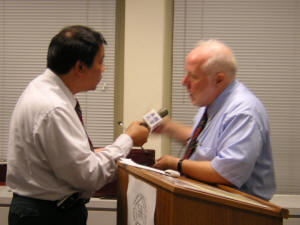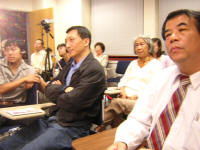 Is it even conceivable that there could be a labor shortage in China? Knowledgeable people have diametrically different views. The question itself operates like a Rorschach inkblot: the answer tells more about the presumptions of the respondents than the reality facing them. But there is a reality and there is an answer, and the implications involve: the competitiveness of the Pearl River Delta vs. the Yangzi River Delta and elsewhere in China (and Asia); the needs and demands for worker (re)training; the current stage of coastal China’s economic boom compared with the boom a generation ago in South Korea, Taiwan, Hong Kong.
Is it even conceivable that there could be a labor shortage in China? Knowledgeable people have diametrically different views. The question itself operates like a Rorschach inkblot: the answer tells more about the presumptions of the respondents than the reality facing them. But there is a reality and there is an answer, and the implications involve: the competitiveness of the Pearl River Delta vs. the Yangzi River Delta and elsewhere in China (and Asia); the needs and demands for worker (re)training; the current stage of coastal China’s economic boom compared with the boom a generation ago in South Korea, Taiwan, Hong Kong.
Also, compared to Hong Kong of the 1960’s, New York of the latter 19th century, Manchester, England of the early 19th century, what is similar to and what is different from the full-bore industrialization and urbanization in the Pearl River Delta today?
And the peasant migrants who make up the bulk of the industrial workforce: what are they thinking, what are they looking for, and what are they willing to take? Is anything, anywhere, better than holding a plow steady behind a plodding ox?
The title question will be answered and the implications explored based on interviews conducted this summer with factory owners and managers, migrant workers, government officials, scholars, social workers, and human rights observers, mostly in the Pearl River Delta, but also in Hong Kong and New York.



